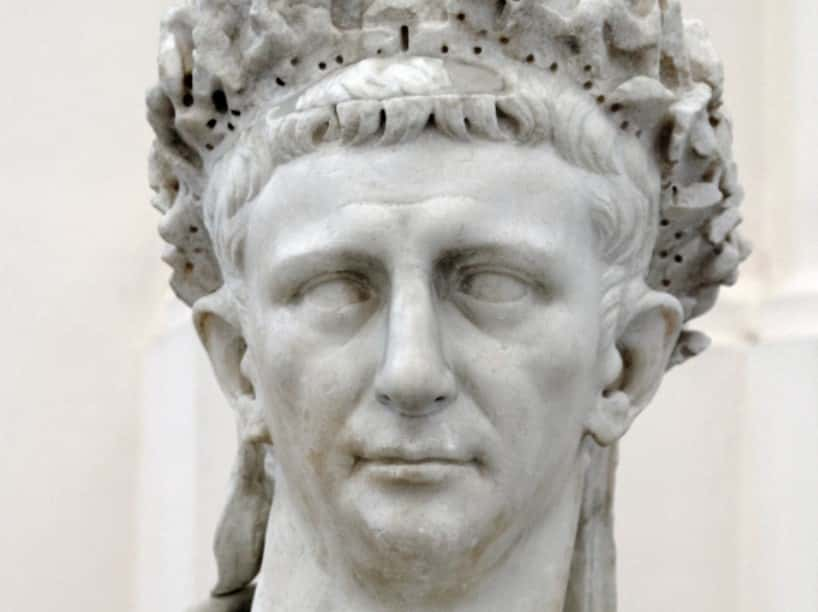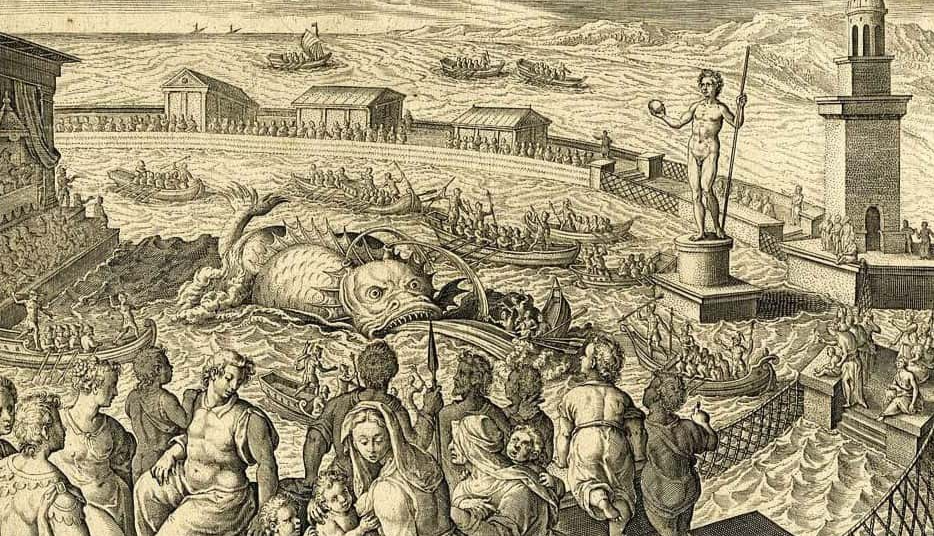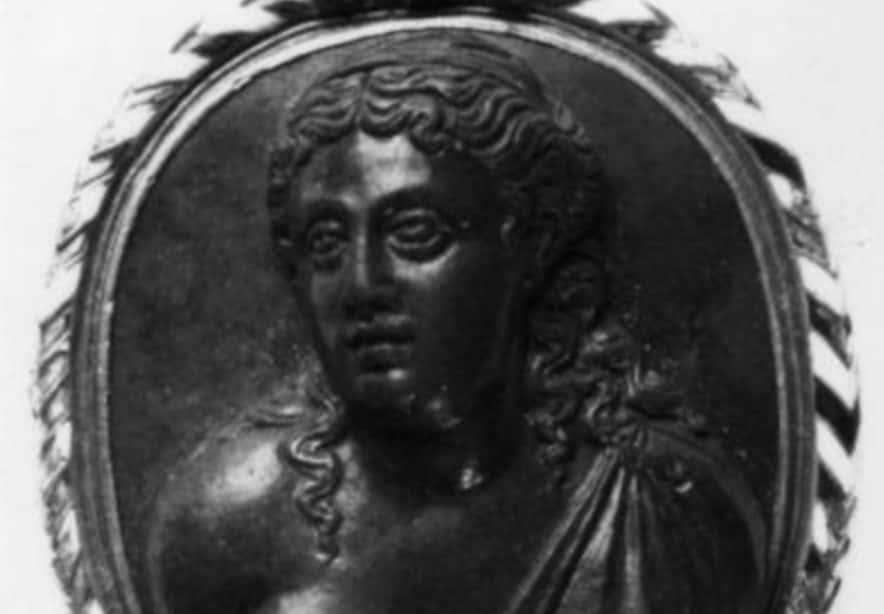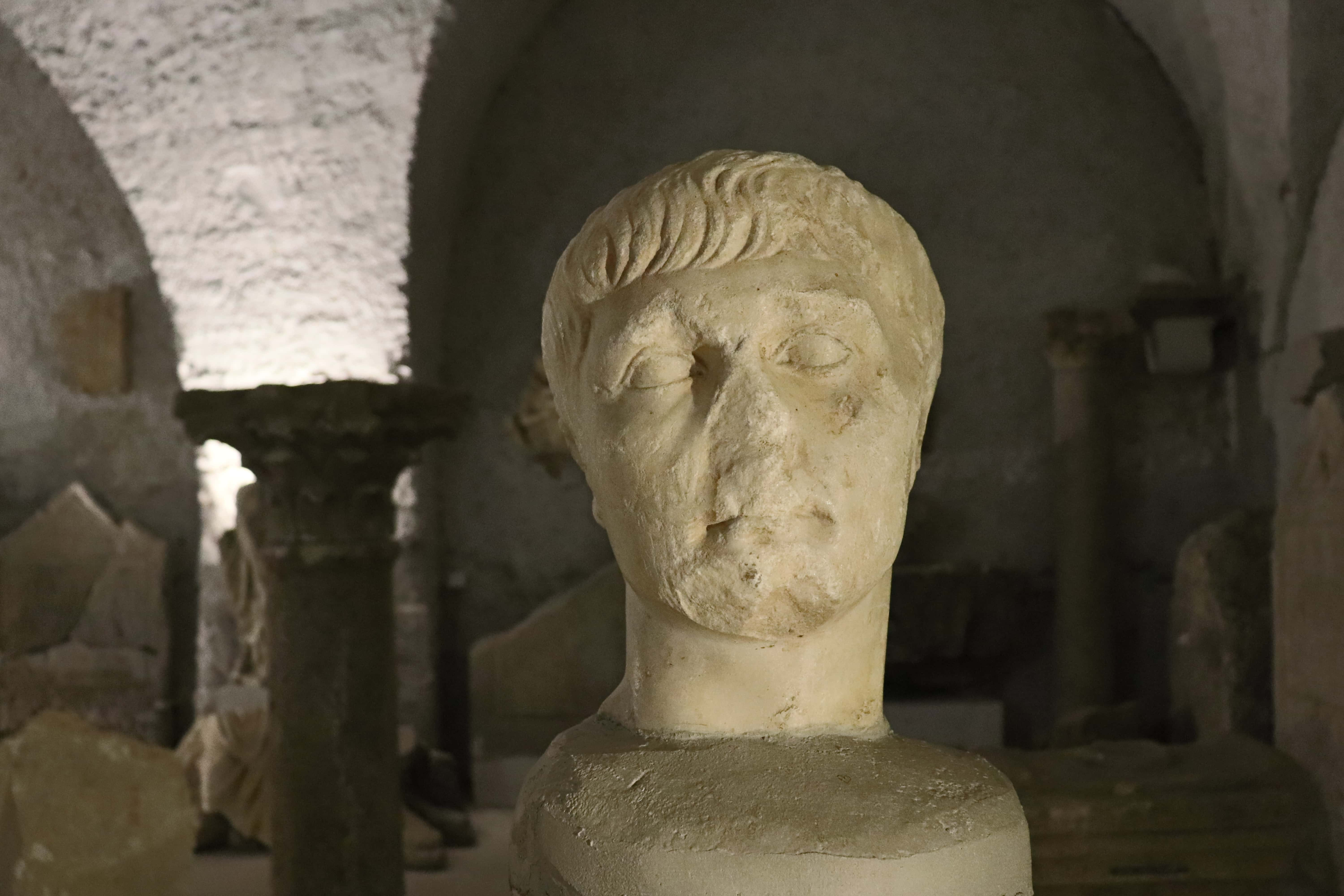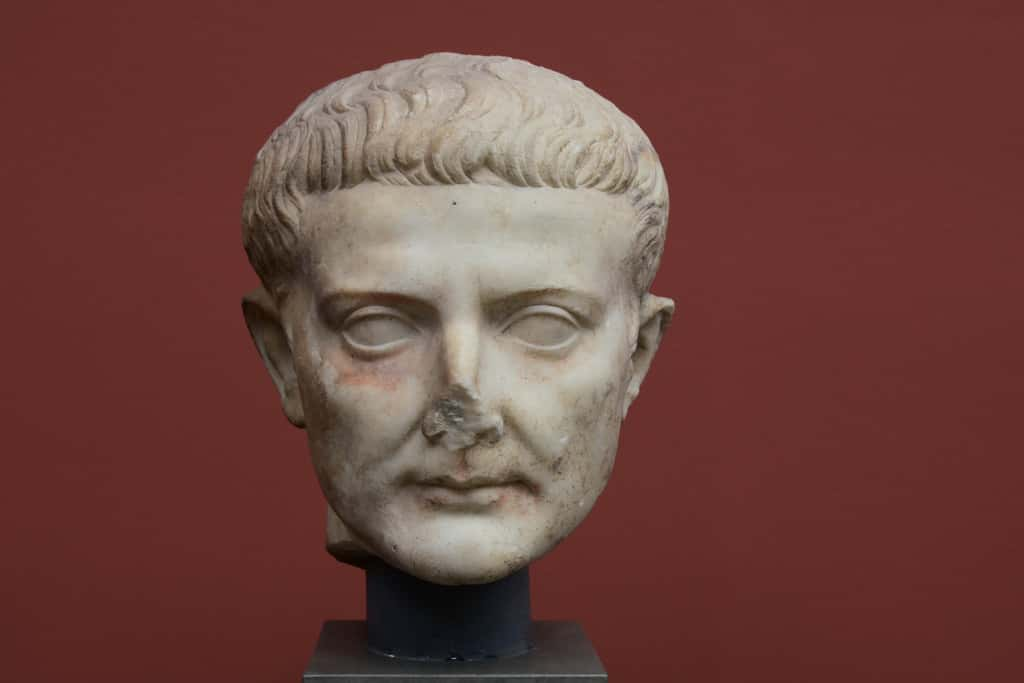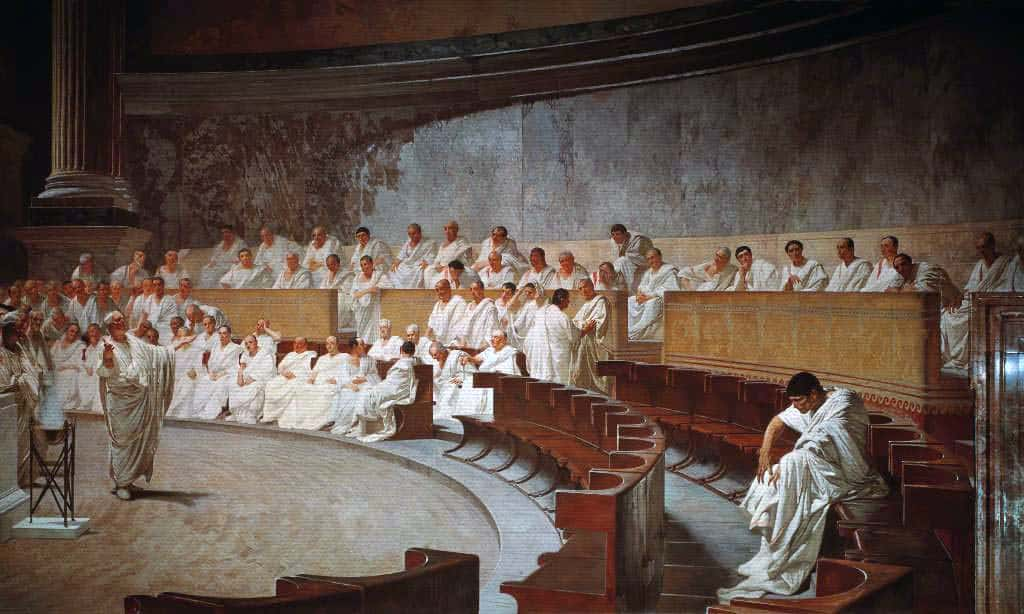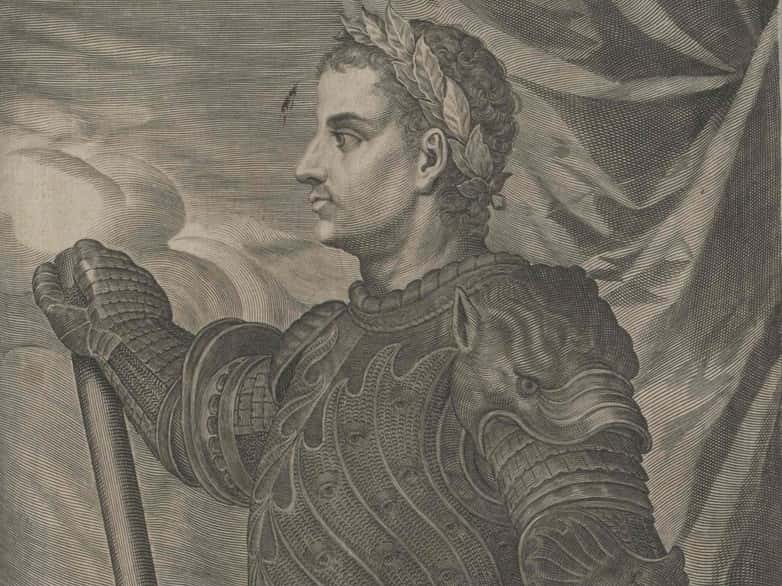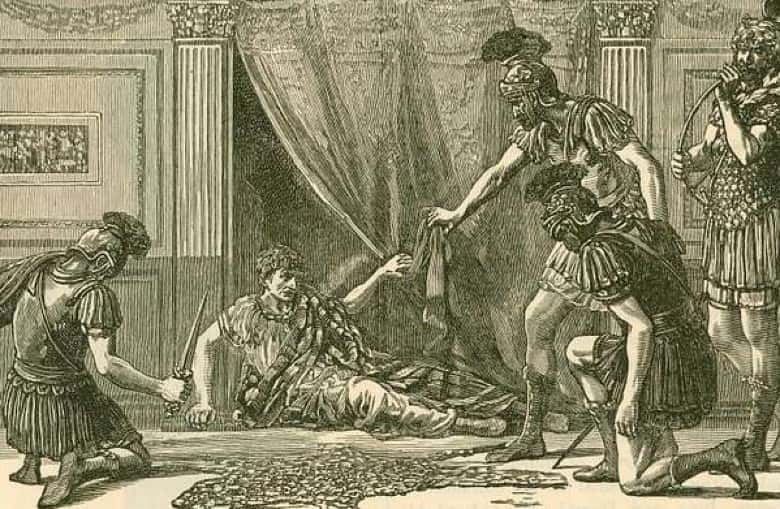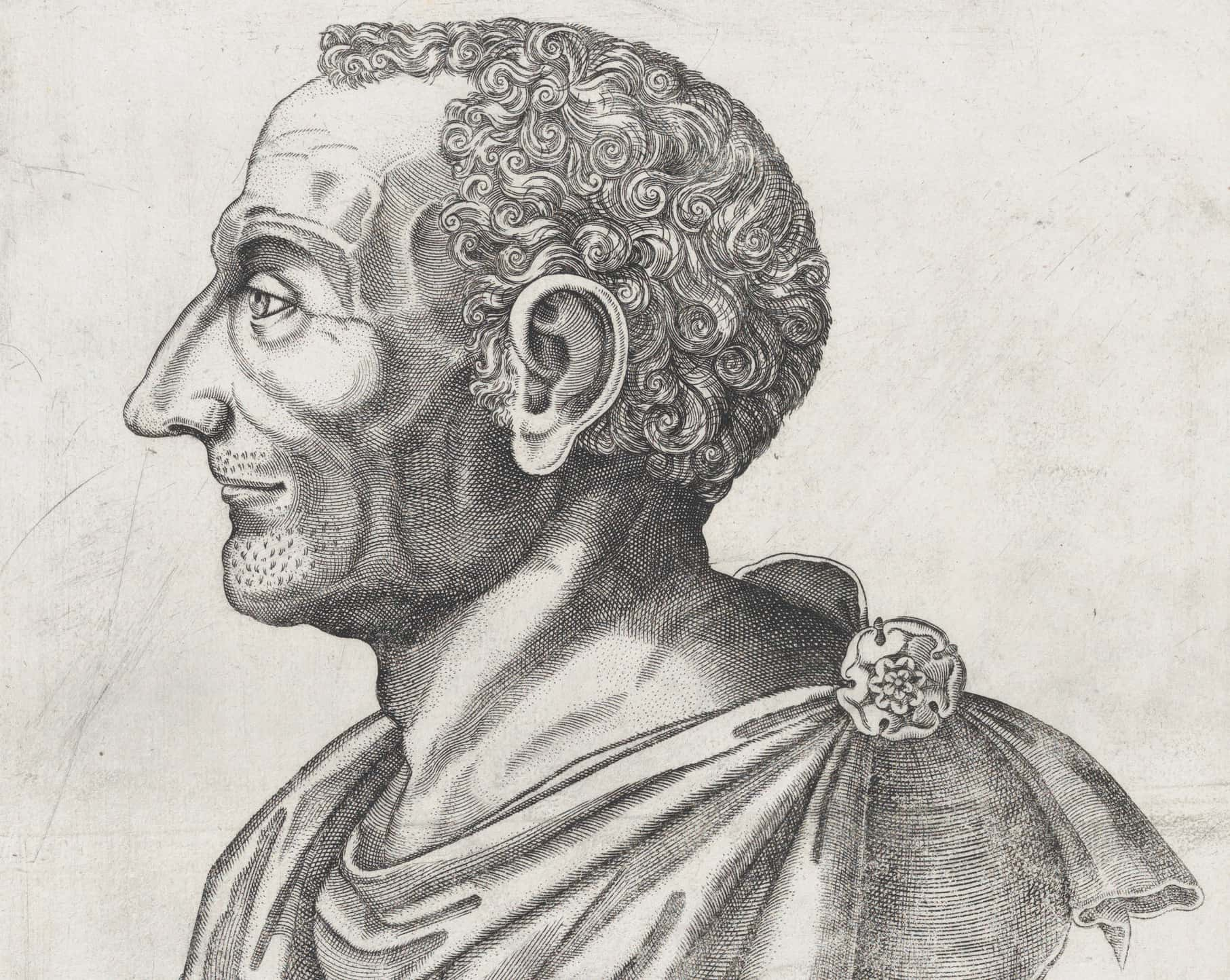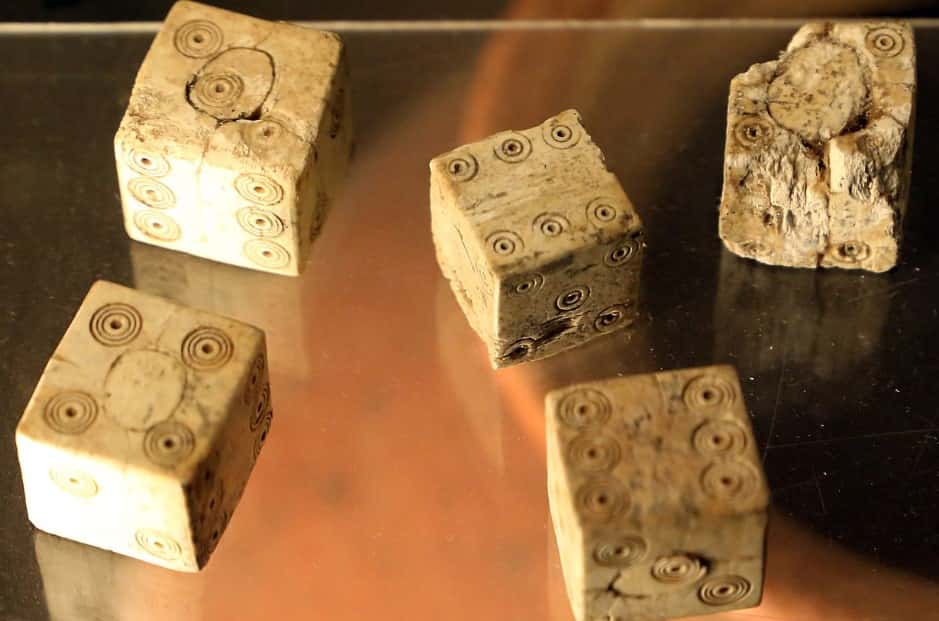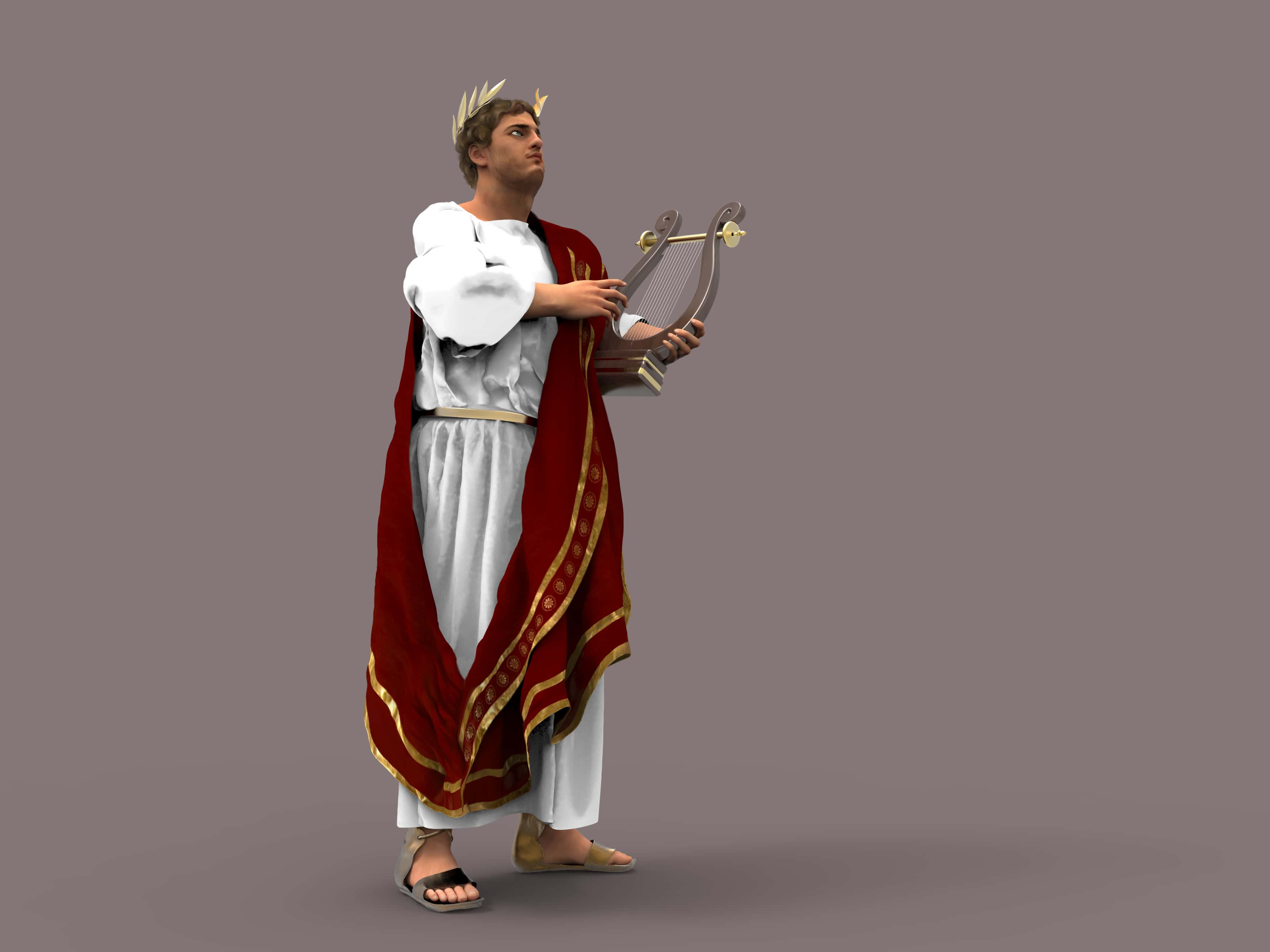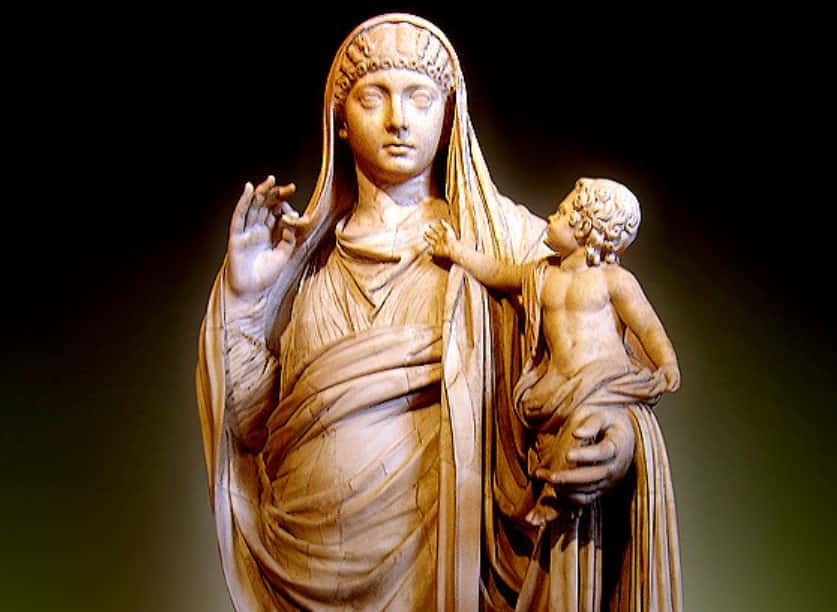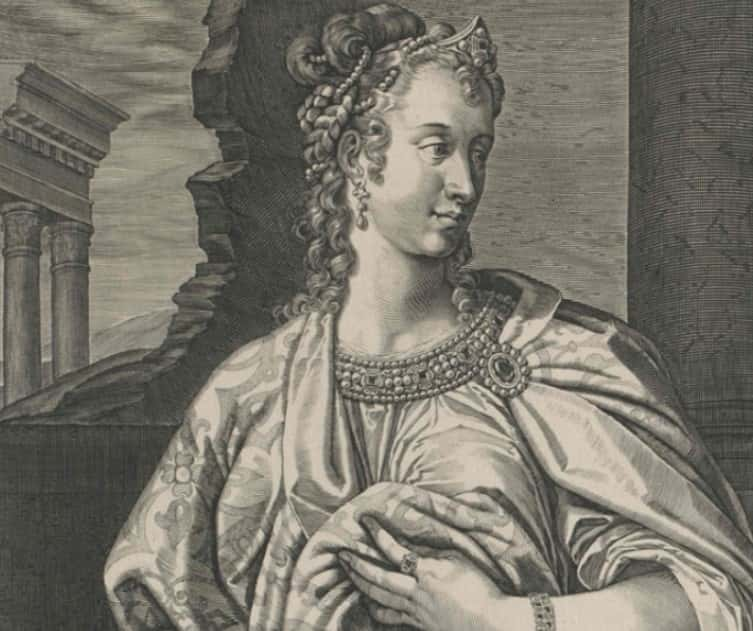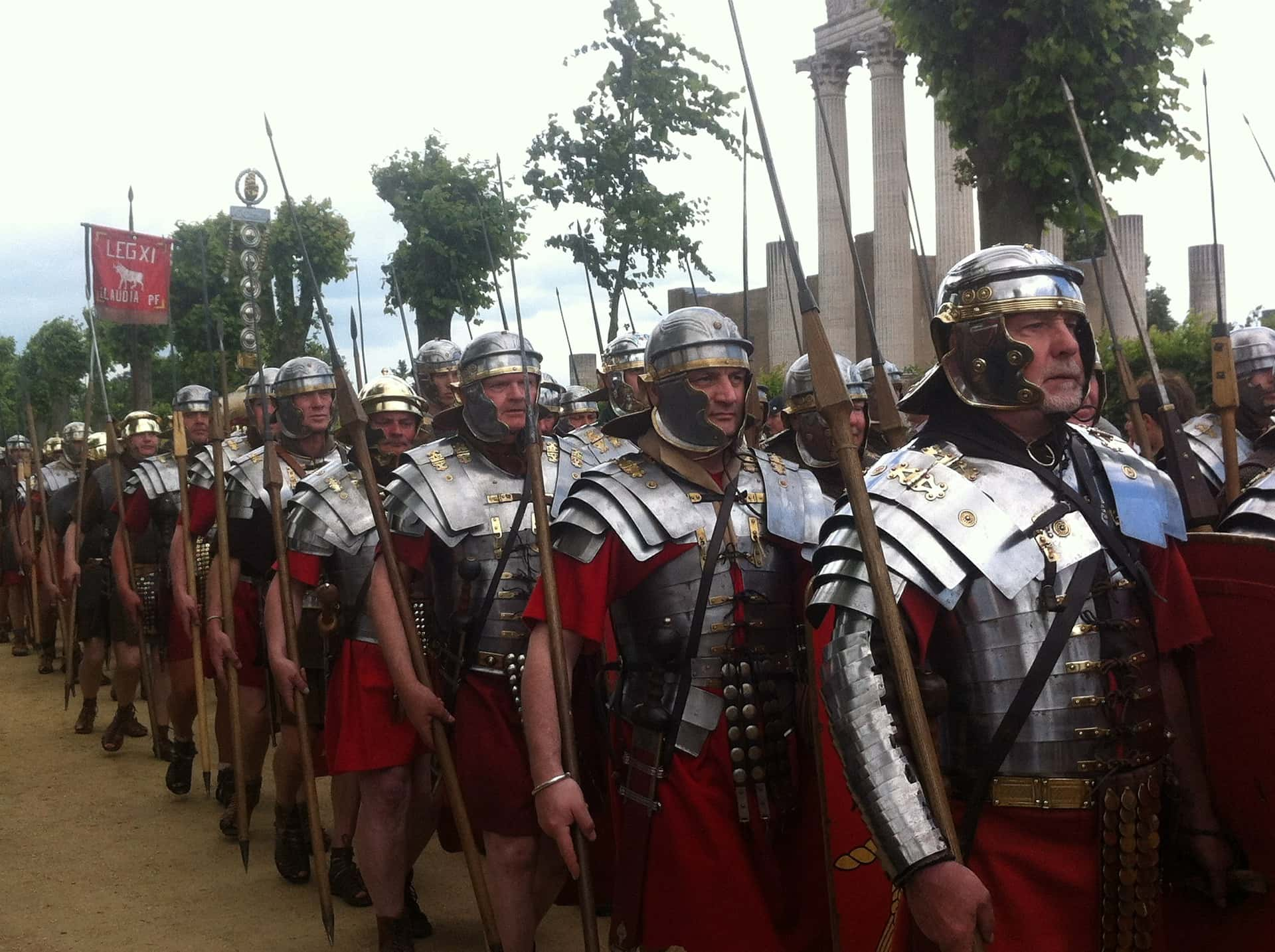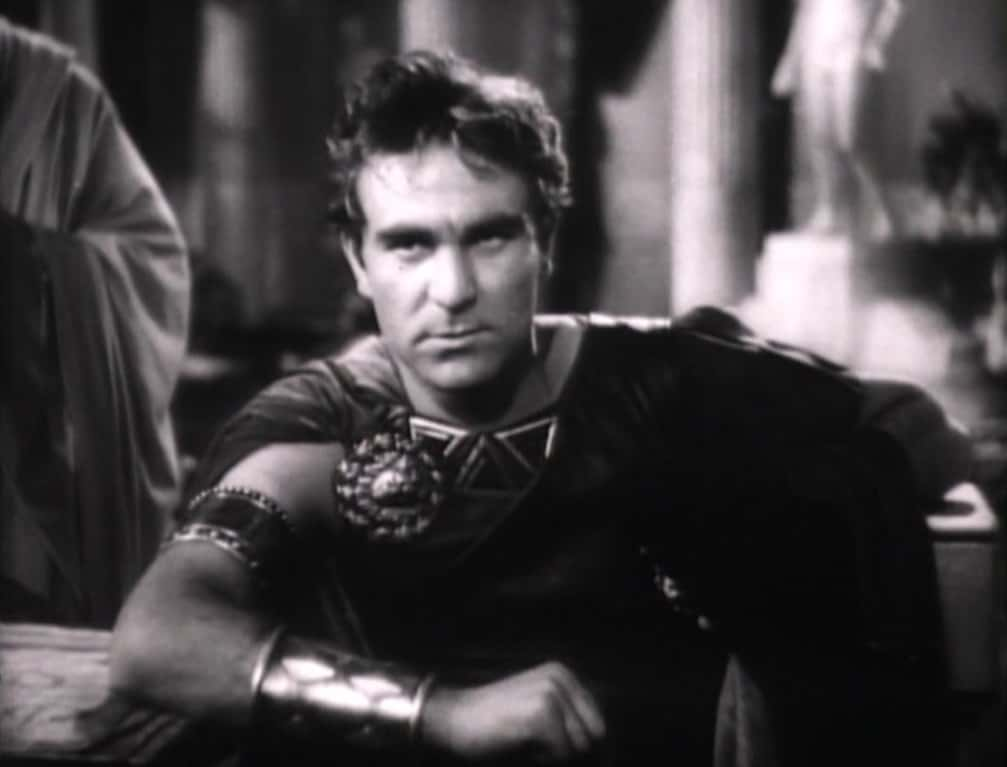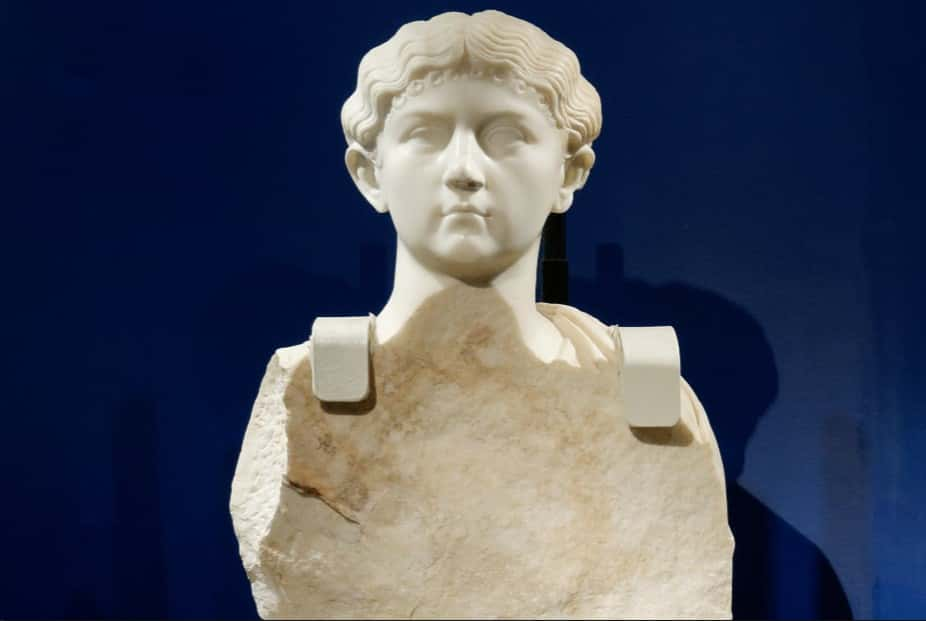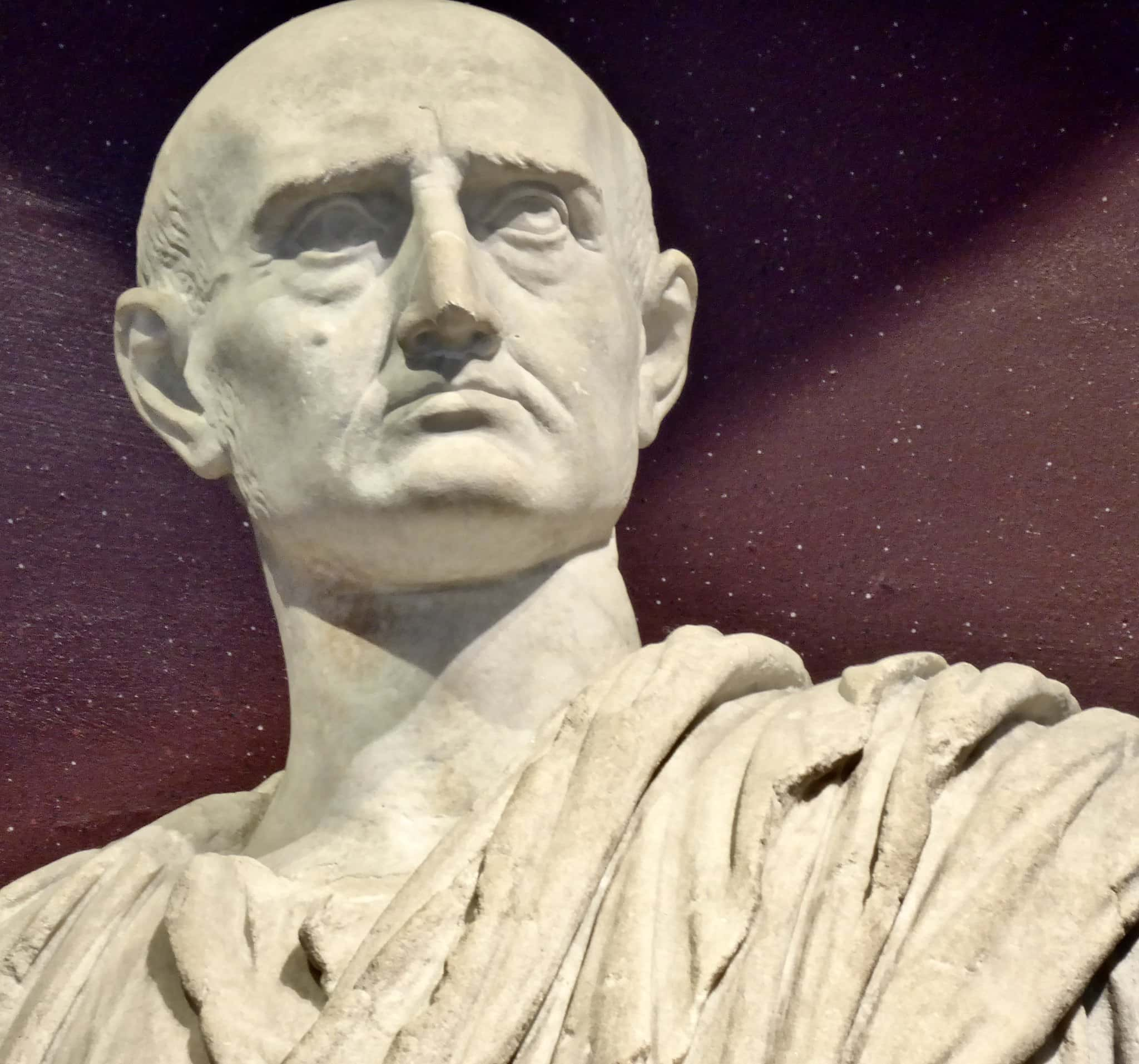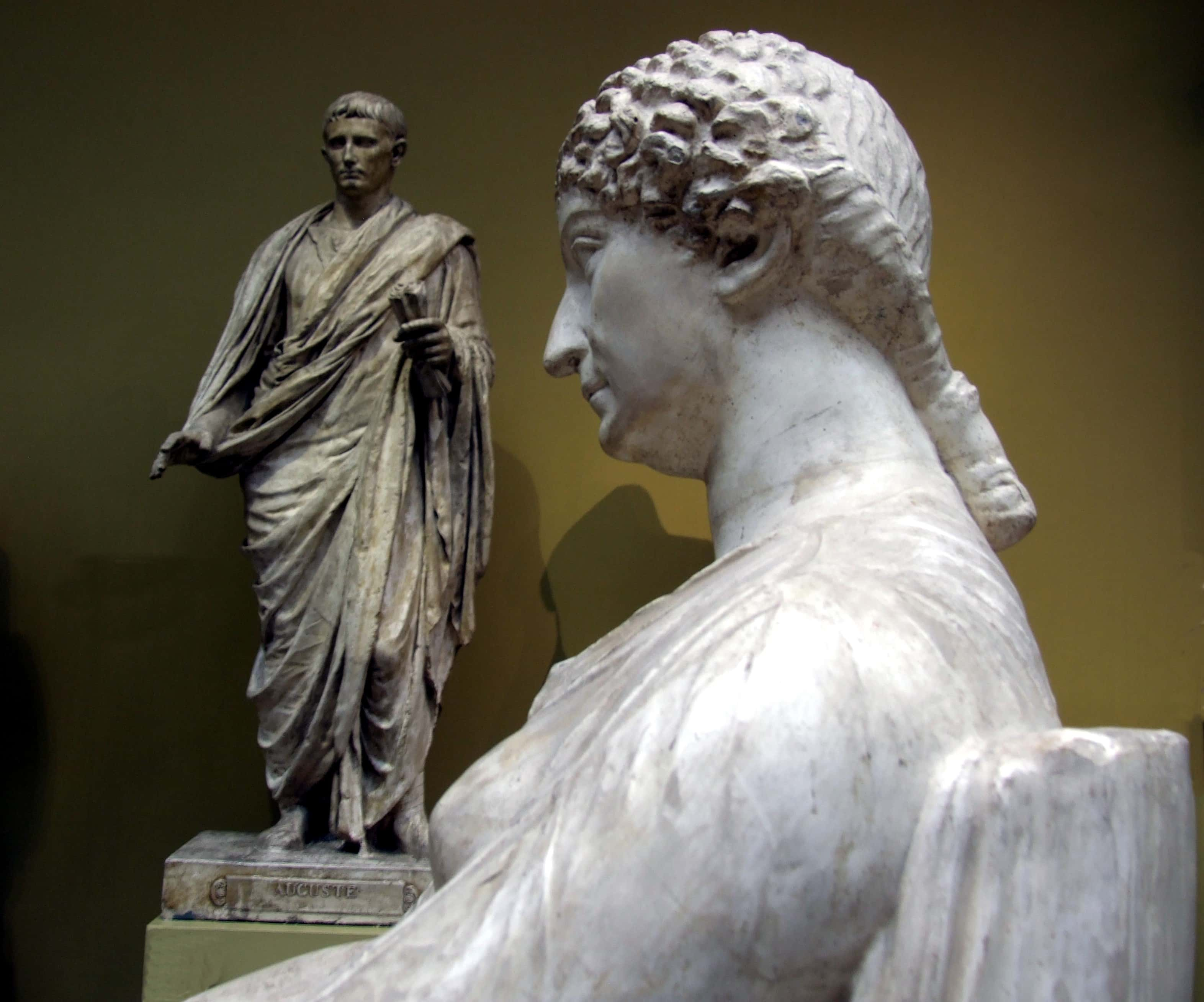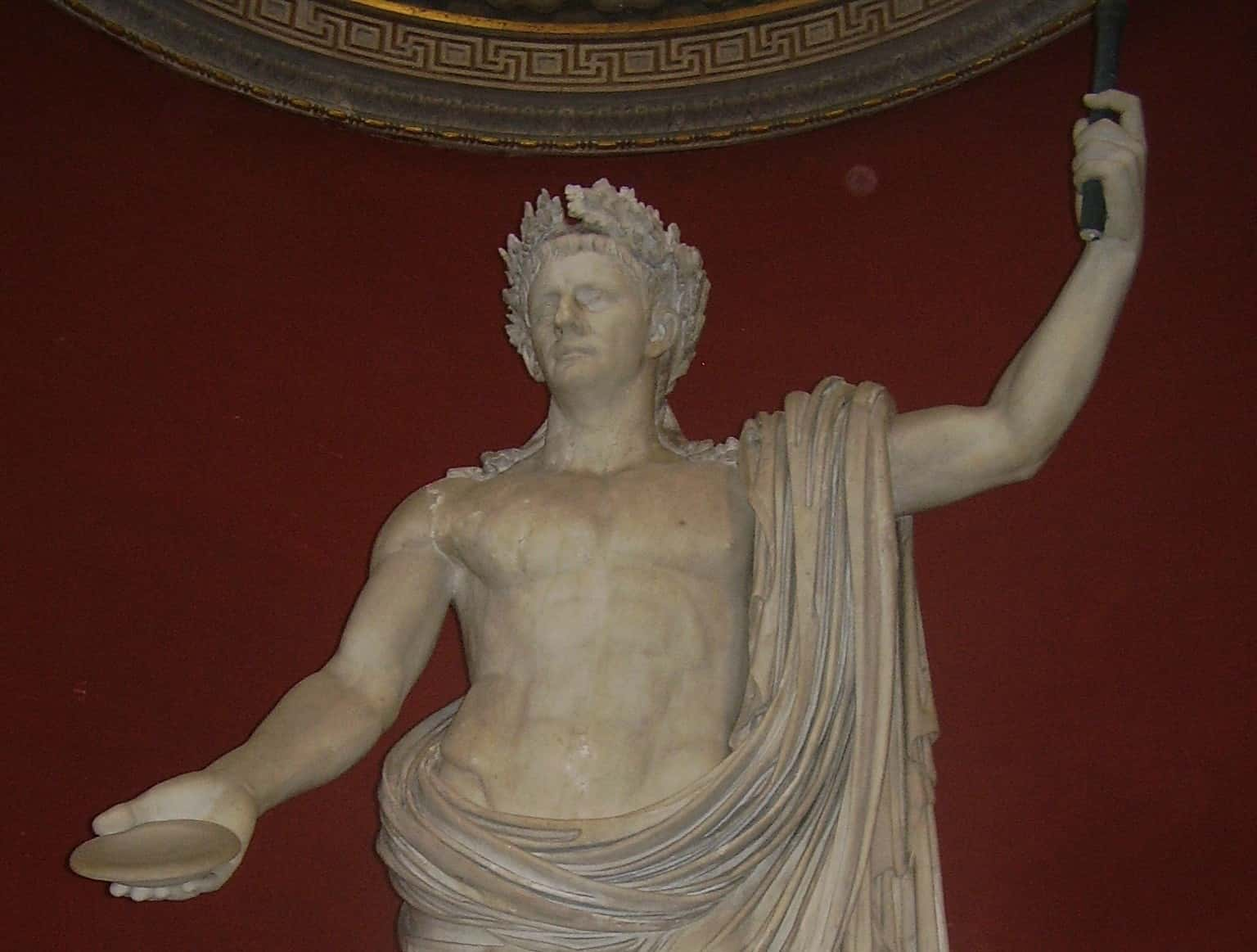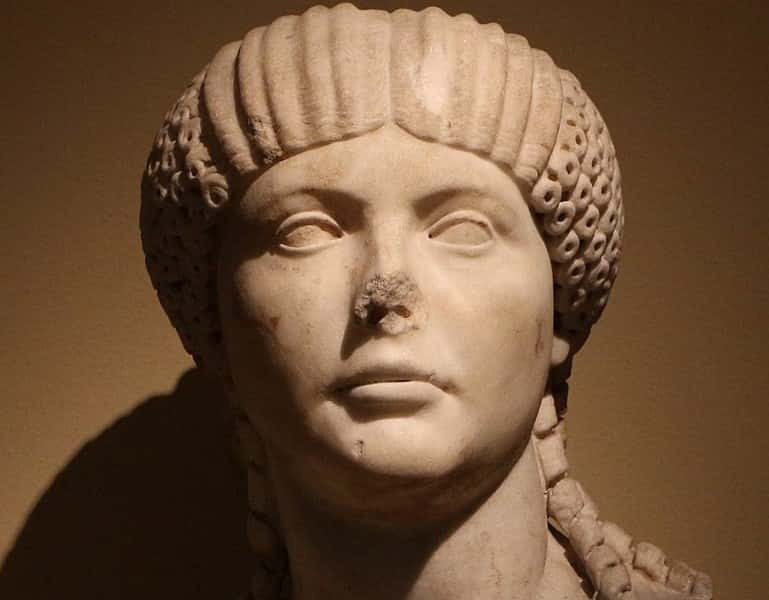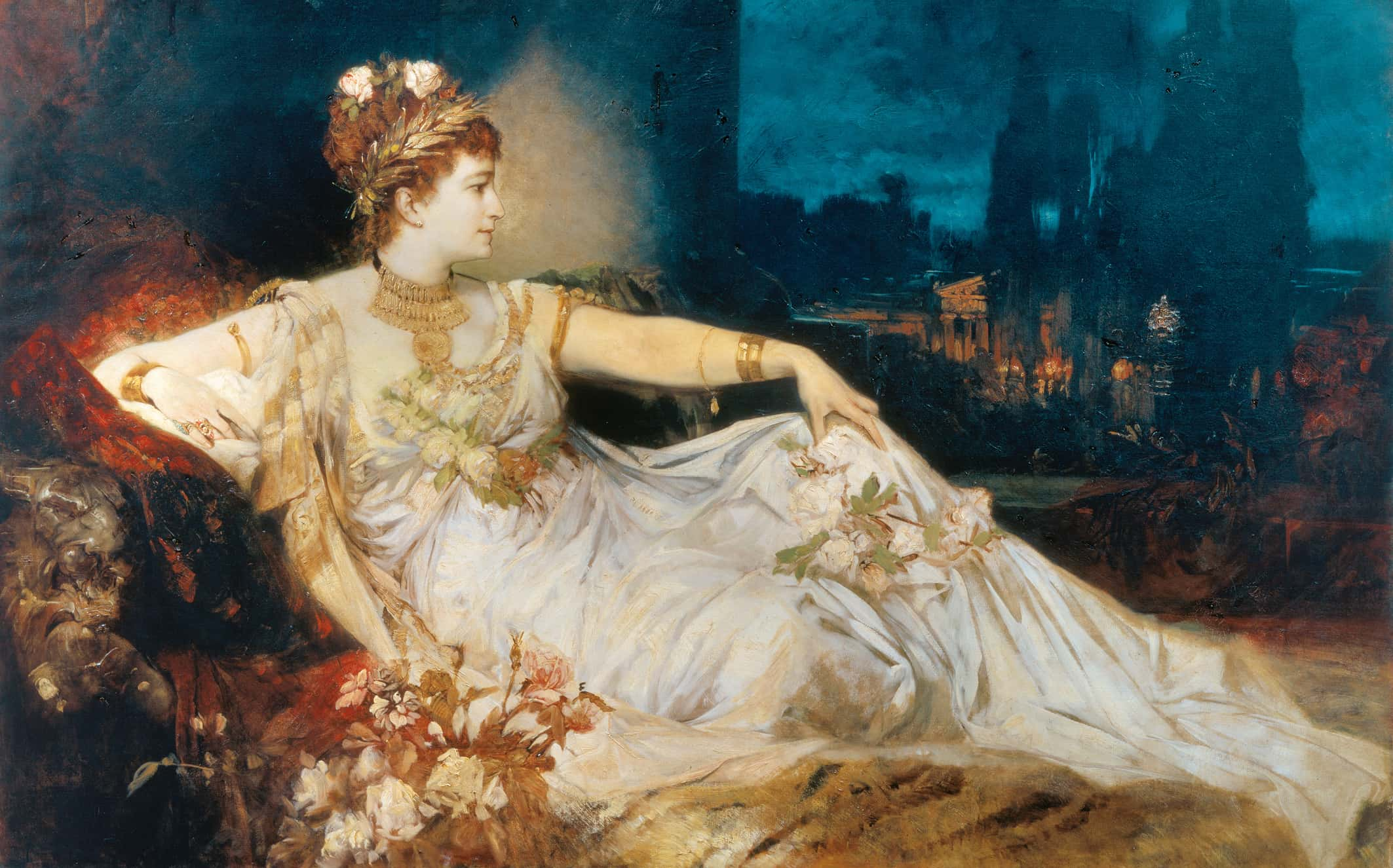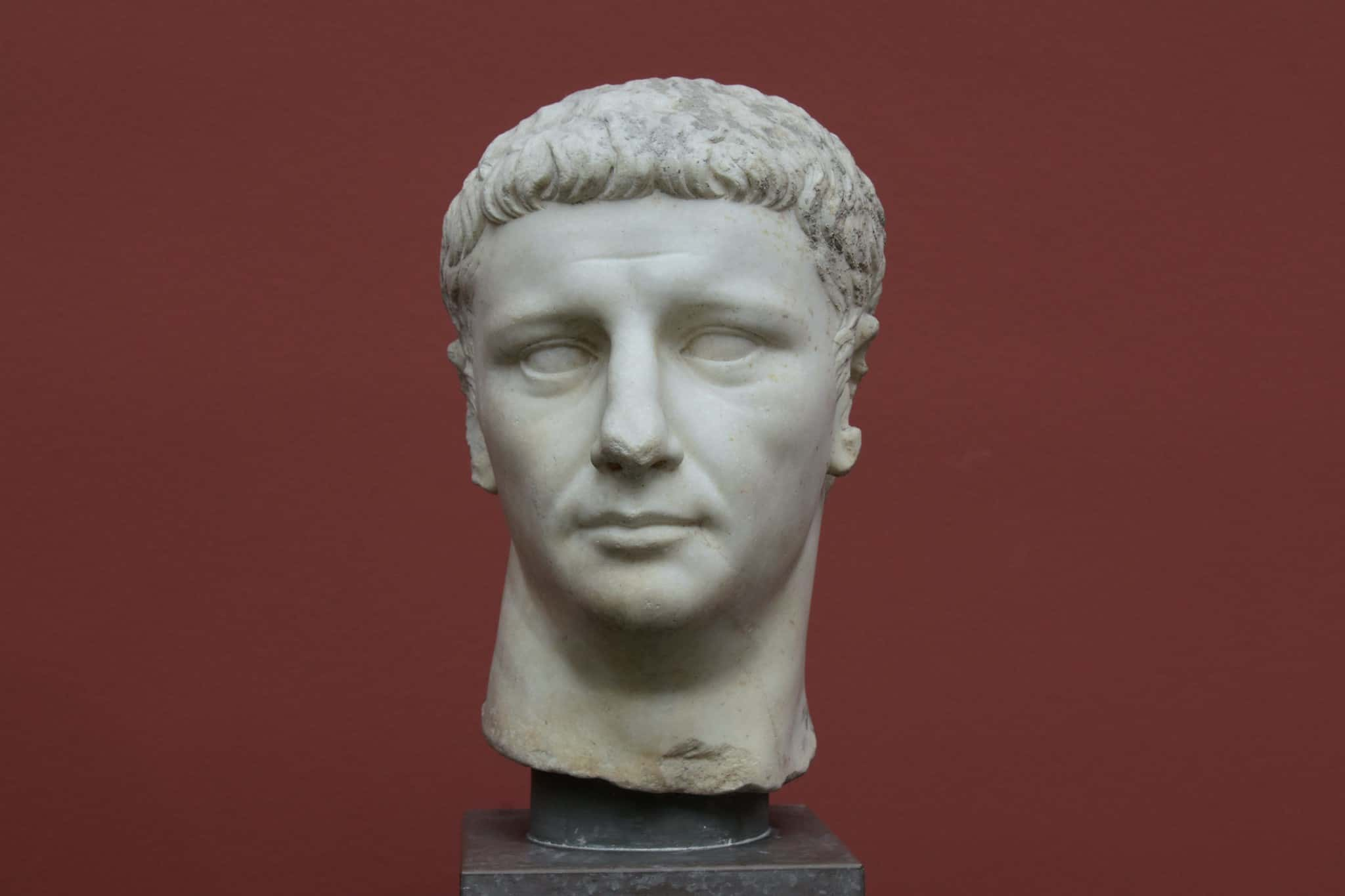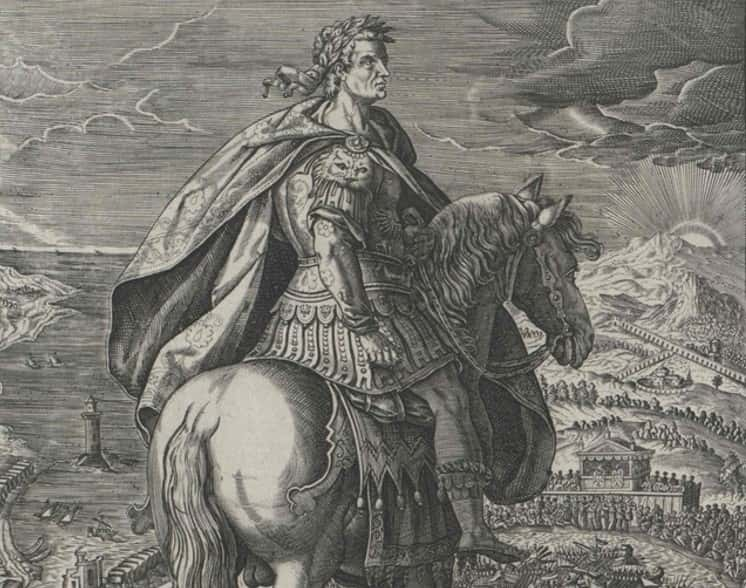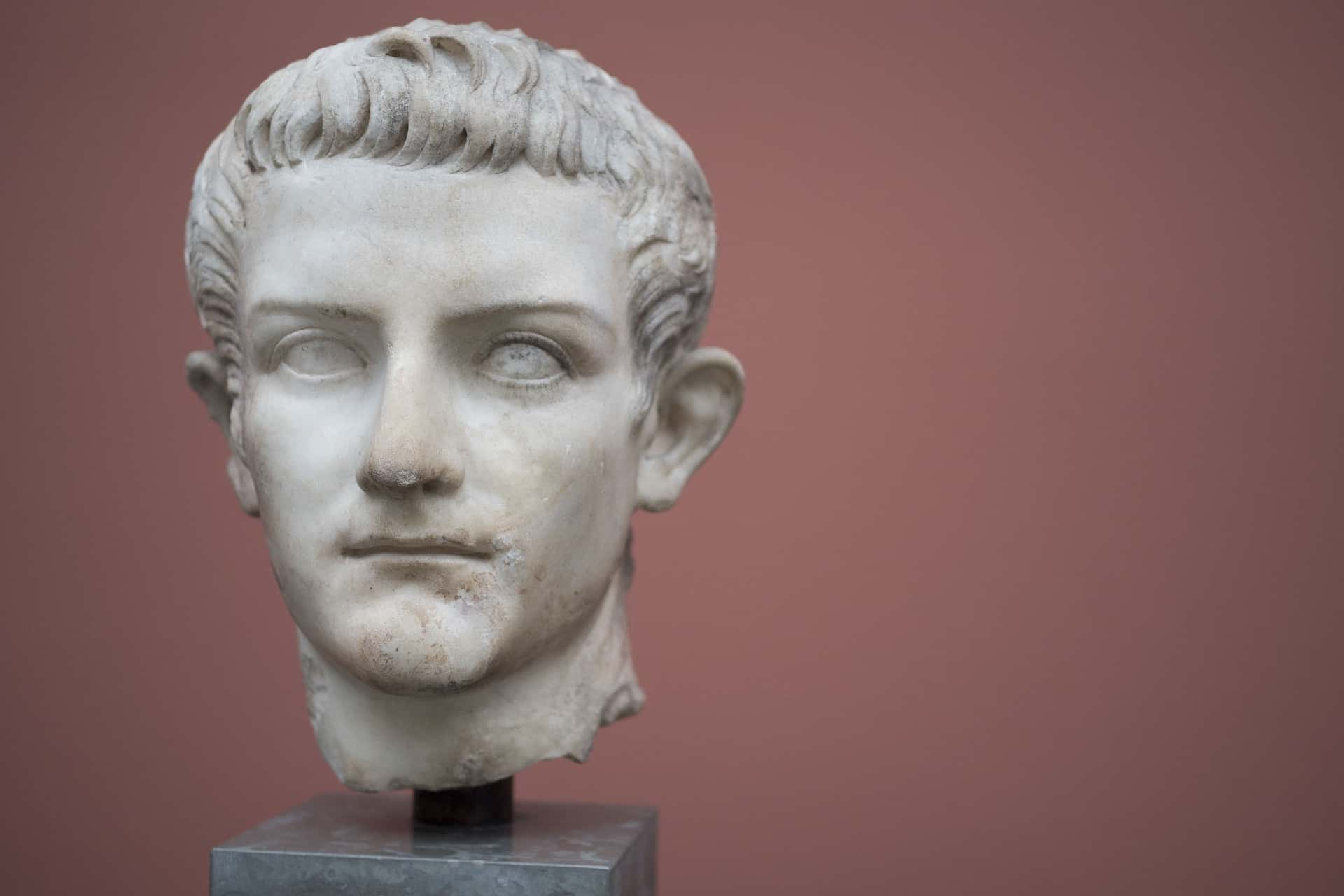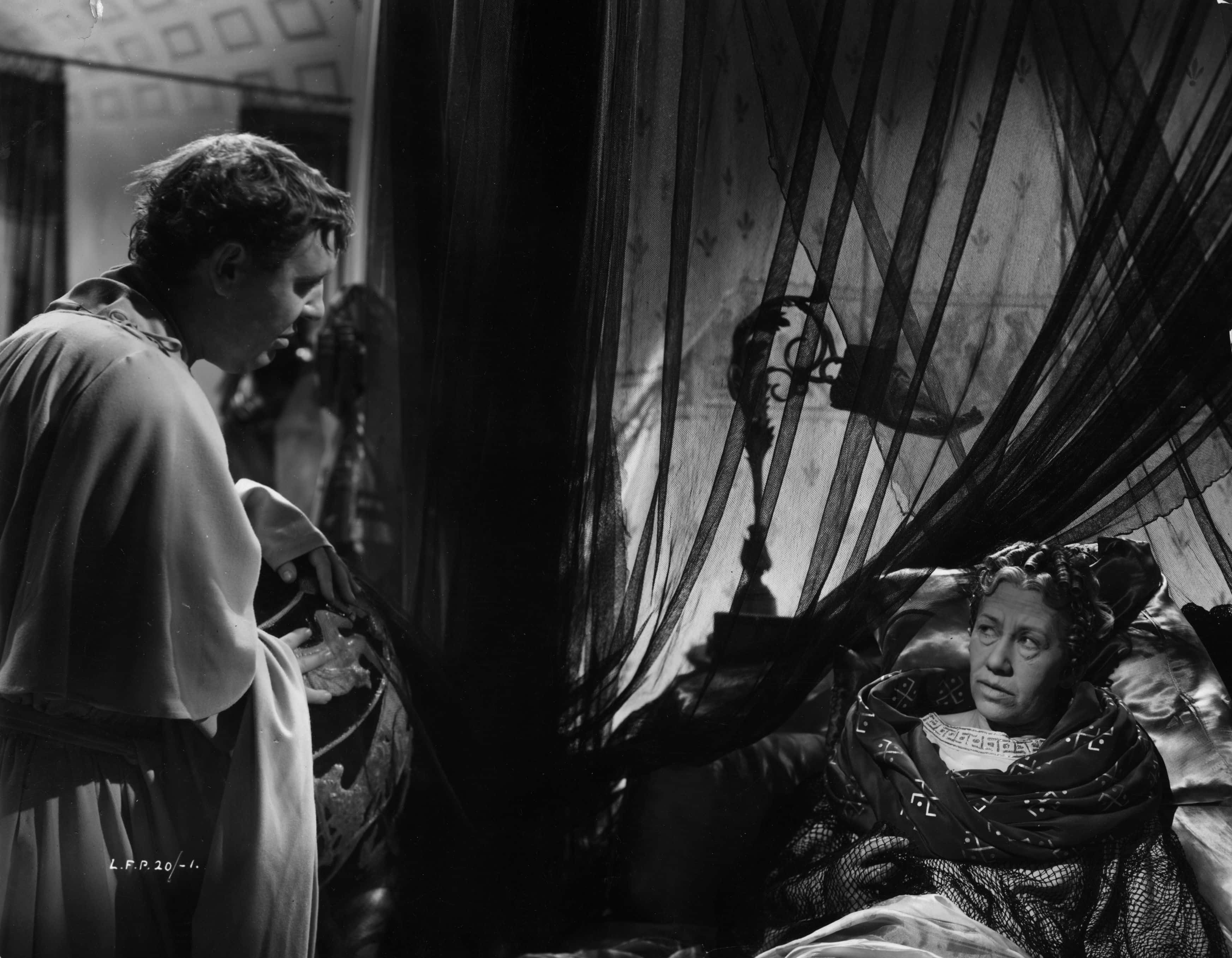In case you’re not aware of who this man is, Claudius was probably the most unlikely man to ever rule the Roman Empire. Even though he was born into the right family for it, he was disregarded and dismissed by almost everyone for much of his life. Then, in the aftermath of a tragic and bloody event, he found himself in the position which nobody ever predicted he’d have: Emperor of Rome. Read on for 42 facts about the Unexpected Emperor.
1. Prestigious Family
Claudius was born on August 1, 10 BC. He was the youngest child of Nero Claudius Drusus and Antonia Minor. Through his father, Claudius was the nephew of Emperor Tiberius. Through his mother, he was the grandson of Mark Antony, the former rival of Emperor Augustus. Speaking of Augustus, he had adopted both Claudius’s father and his uncle as his successor.

2. Long May He Reign
Claudius reigned as Roman emperor from January 24, 41 AD until October 13, 54 AD, or around 13 and a half years.
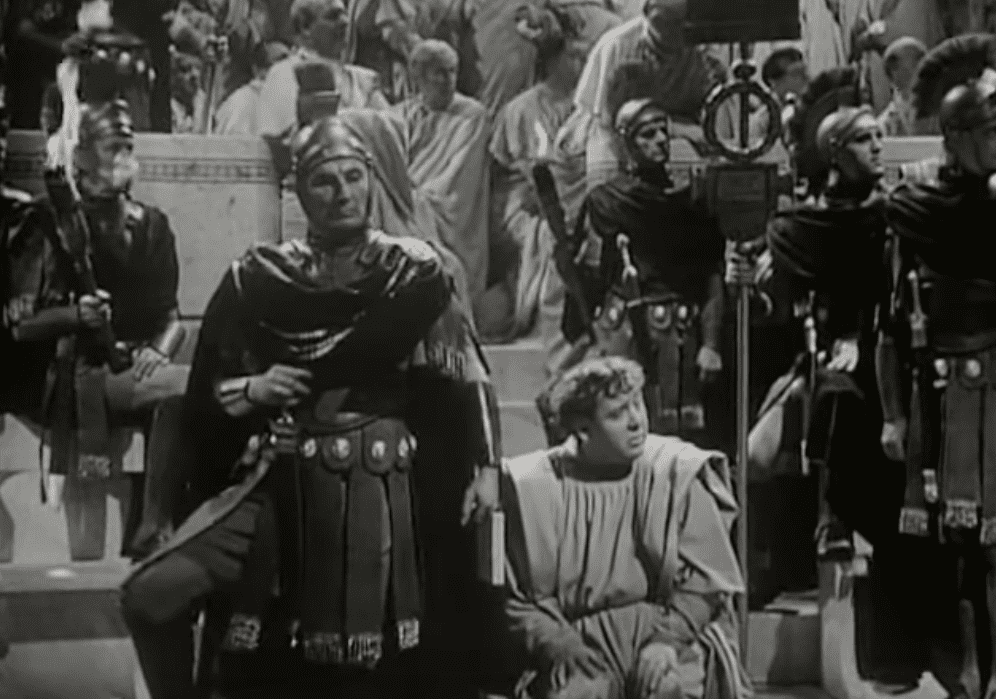 I, Claudius (1937), London Film Productions
I, Claudius (1937), London Film Productions
3. Quite the Mouthful
In case you’re curious, Claudius’s full name was Tiberius Claudius Caesar Augustus.
4. Kill Willy
One of the most bizarre moments of Claudius’s life was when he fought a killer whale! Granted, the truth was a bit less impressive than it sounds. According to Pliny the Elder, who witnessed the event, Claudius was in Ostia when he noticed a killer whale had been drawn into a shallow part of the harbor. Seeing that the whale was trapped, he ordered nets to trap it further while he entertained a large crowd by “fighting” it with the help of his guards.
The whale was eventually slain, but it put up a remarkable fight, trapped as it was. Pliny noted that a ship which engaged the whale was sunk due to a blast of water from its blowhole.
5. Lost Loves
Before any of his marriages, Claudius was engaged to two different women. His first engagement was to a distant cousin named Aemilia Lepida. However, they were forced to call off the wedding for political reasons. His second broken engagement was far more tragic; Livia Medullina perished on the same day that she was set to marry him!
6. The Black Sheep?
Claudius had two older siblings: a sister named Claudia Livilla Julia, and a brother named Germanicus Julius Caesar (three guesses as to which famous relative he was named after). While Claudius was shunted into the shadows by his family, his siblings were seemingly destined for great things. Germanicus was a renowned warrior and was even adopted as the heir to Emperor Tiberius, his uncle.
Livilla, meanwhile, was married to two different heirs to the Roman Empire during her life. One was Gaius Caesar, the grandson of Emperor Augustus, and Emperor Tiberius's biological son, Drusus Julius Caesar. Unfortunately, both Livilla’s husbands had early graves, before they could become emperor.
7. Farewell, Father
Claudius’s father, Nero Claudius Drusus (best known as Drusus the Elder), was one of Emperor Augustus’s original heirs. Drusus the Elder led many successful martial campaigns in the name of the Roman Empire. However, he fell from his horse in 9 BC, dying of his injuries a month later. He was widely mourned by the Romans as one of their best leaders, gone before his time.
He was just a year old when his father passed on.
8. Level of Guilt
There has been a longstanding suspicion that Claudius was actually involved in the assassination of Caligula, or that he was at least aware of what was about to happen. Historians who believe this point to the fact that he pardoned nearly all of the assassins after he became emperor, as well as the fact that he was in the same room as Caligula shortly before he was slain, but conveniently left just in time to not be a witness to the assassination.
To be fair, given how Caligula treated Claudius all those years, we can’t be too surprised if he really did get involved.
9. Farewell, Brother
By 19 AD, Claudius’s brother, Germanicus, was the heir to Emperor Tiberius. Just like his and Claudius’s father, the late Drusus the Elder, Germanicus was hailed as the most promising army leader in Rome. He not only led successful campaigns in northern Europe, but he also led campaigns in Asia Minor. Unfortunately, he too died young, passing away that year at the age of 33.
It was suspected that he was poisoned, but this has only ever been speculation.
10. Even Tyrion Would Feel Sorry for Him
While his brother was the golden boy of Rome, Claudius was definitely the black sheep. During the reign of Emperor Tiberius, Claudius was kept out of the public spotlight. Despite his attempts to pursue politics just like everyone else in his family, Tiberius ensured that Claudius was only ever given low positions. He eventually gave up hitting his head against a metaphorical brick wall and turned to bad habits out of boredom.
However, he also got his revenge by proving his ability in another way (more on that later).
11. The Roman Underdog
It might surprise you to know that while Claudius was being snubbed from real power by his own family, the public was remarkably sympathetic towards him. During the reign of Emperor Tiberius, the Roman Senate insisted that Claudius be allowed to debate within the senate. When his house accidentally burned down, the Senate once again went to bat for him and urged for funds from the government to be spent building him a new home.
12. Proving Everyone Wrong
Despite all the assumptions by his family, Claudius was far from stupid. He famously possessed a very keen intelligence, which he turned to academia when his political aspirations were frustrated. History was his primary subject, and he wrote dozens of books covering the histories of the Etruscans, Carthage, and the republic of Rome. Eventually, his family had to grudgingly admit that he was a gifted writer.
Even Caligula, though he despised Claudius, saw the value of his 46-year-old uncle and appointed him as co-consul of Rome.
13. Come and Get Me!
It should surprise nobody to hear that Claudius’s reign bore witness to several attempted coups. Many of these attempts involved Roman senators, and naturally, they were either put to the sword or forced to kill themselves. A large reason why the coups never worked out was that the army remained loyal to him, rather than to the Senate.
14. You’re the Aristotle to My Alexander
One of the first positive role models and most important figures in Claudius’s life was the man whom his family hired to teach him in the subject of history. Incredibly, this teacher was the famous historian Titus Livius, best known as Livy. Small wonder that he developed a passion for history!
15. Lucky He was Born Before Casinos
Despite his intelligence, Claudius was hardly without his vices. He was especially fond of dice and frequently engaged in gambling. He even wrote about dice playing, which makes us wonder if he ever tried to defend his gambling by claiming that it was “research” for his book!
16. The Opposite of Wonder Years
The years of Caligula’s reign were arguably the worst of Claudius’s life. As we mentioned before, Caligula did give him political office, but again, this exposed him to daily torments at the orders of his nephew. Based on a surviving portrait of him from this time, he grew incredibly thin during this time, with historians blaming it on stress or a poor lifestyle forced upon him by Caligula.
17. Always Unlucky in Love
Claudius was married four times in his life. His wives were called Plautia Urgulanilla, Aelia Paetina, Valeria Messalina, and Agrippina the Younger (more on all of them later). Speaking of his multiple wives, one criticism that he received from Roman writers is that he was a womanizer during his life. These critics also claimed that he was easily manipulated by women, which allegedly affected his ability to rule as emperor.
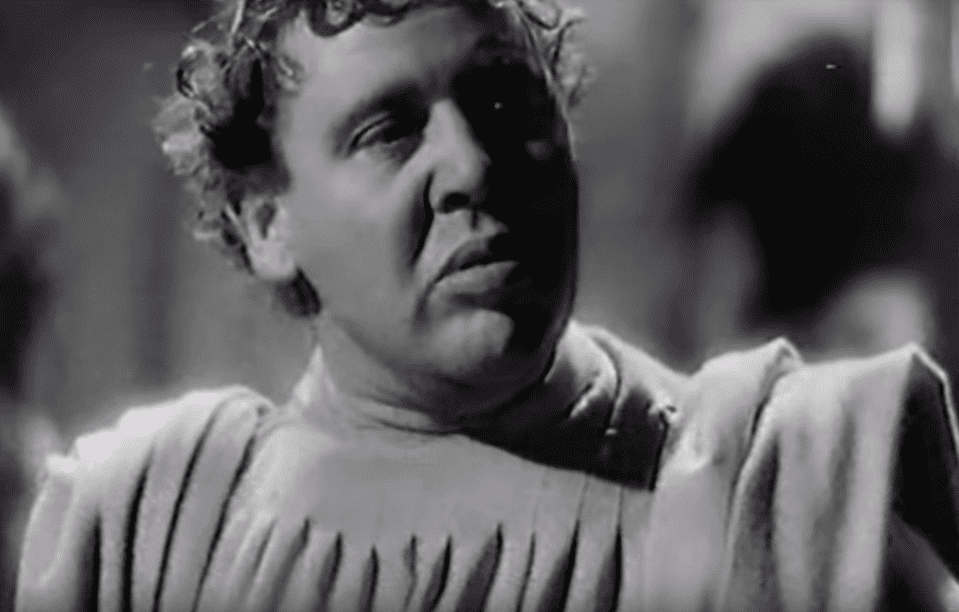 I, Claudius (1937), London Film Productions
I, Claudius (1937), London Film Productions
18. My Poor, Ill-Fated Son
Claudius's son Tiberius Claudius Caesar Britannicus, best remembered by the fourth of those names, was born in 41 AD. Claudius considered Britannicus to be his heir, until his marriage to Britannicus’s mother fell apart. Britannicus was put aside to make way for Nero as Claudius’s new heir. Despite that, his natural-born son was a threat to Nero, so he had the 13-year-old boy poisoned.
Though many claims of poison throughout Roman history were mere rumors, that's not the case here. Every single historical source we have names Nero as the man behind the brutal act.
19. Nice Try, Liar
In the 12th century, Geoffrey of Monmouth made a rather remarkable claim about Claudius in his “historical” work, Historia Regum Britanniae. In it, Monmouth claimed that Claudius had an illegitimate daughter named Venissa, who was given to a British king as a bride when he submitted to Roman superiority. Historians treat this as a falsity, as no Roman accounts mention the marriage, or even Venissa’s identity.
If Claudius really had given away any of his children, legitimate or otherwise, into marriage with a non-Roman and former enemy, we’d definitely have heard something about it from Claudius’s contemporaries.
20. My Contributions
Claudius oversaw a number of infrastructural reforms during his reign over Rome. Roads and canals were built all across the empire, as well as at least two major aqueducts. At his command, a large new harbor was built in the coastal city of Ostia. Additionally, the supply system which provided grains to the city of Rome was reorganized.
21. Great Literature…
In 1934, English writer Robert Graves published the novel I, Claudius. This ambitious novel is written as though it was an autobiography of Claudius, though it also includes a history of the Roman Empire from the assassination of Julius Caesar to the demise of Claudius. In 2005, Time magazine chose I, Claudius as one of the best English-language novels of the 20th century.
22. …Begets Great TV
In 1976, the BBC adapted I, Claudius into a miniseries. Starring Derek Jacobi as Claudius, the miniseries also includes George Baker as Tiberius, John Hurt as Caligula, and Brian Blessed as Augustus. I, Claudius was wildly popular during its original UK run, drawing an average of 2.5 million viewers per episode. In 2007, I, Claudius made Time magazine’s “100 Best Shows of All-TIME” list.
What can we say, Time likes the Unexpected Emperor.
23. Original Names for One’s Offspring
Claudius had at least five children during his lifetime. Two of them (Claudius Drusus and Claudia) were by Plautia Urgulanilla. Claudius and Aelia Paetina had a daughter together named Claudia Antonia. Finally, Claudius had two more children (Claudia Octavia and Tiberius Claudius Caesar Britannicus) with Valeria Messalina. Despite his many ailments, at least one part of his body seemed to work just fine.
24. Unhappy Matrimony
Both of Claudius’s first two marriages ended in divorce. In the case of Plautia Urgulanilla, Claudius accused her of adultery and repudiated his daughter by her on the grounds that she was not biologically his. It’s not fully known why he divorced Aelia Paetina; the reasons offered vary between political motivation and emotional torment on Paetina's part.
25. Just Under an Even Six
We have a decent idea of the Roman Empire’s population in 48 AD thanks to the actions of Claudius. That was the year he ordered a census be taken of his empire. Only men of Roman citizenship were counted, however, excluding everyone else. According to this census, the Roman Empire consisted of 5,984,072 citizens—though obviously, the actual number would have been much higher if he'd included the rest.
26. Bereaved Father
Claudius Drusus was the eldest son of Claudius, born in 16 AD, long before his father ever became emperor. Sadly, Claudius Drusus passed on tragically young in 20 AD when he reportedly choked to death while eating a pear.
27. Land Grabber
During his rule as emperor, Claudius initiated the first major expansion of the Roman Empire since the rule of Augustus. Several provinces were added to the empire, including Lycia, Thrace, Noricum, and Judea.
28. What’s the Opposite of Brexit?
The most famous and impactful expansion instigated by Claudius, however, was the conquest of Britain. Prior to Claudius, Britain bore witness to the invasion of Julius Caesar, but the Romans hadn’t completed their invasion back then. So, in 43 AD, a new army of Romans sailed to the British Isles, determined to finish what they'd started. The conquest took nearly 40 years to complete, and even then, not all of Britain was conquered, but areas of Britain became a Roman province for many years.
29. Another Victim to Nero
Claudia Antonia was the oldest daughter of Claudius, born eleven years before Claudius became emperor in 41 AD. Antonia was married to two different men in her life, but they were both slain, one of them on the order of Emperor Nero. Nero later wanted Antonia to marry him, but she refused (presumably because she heard about what happened to his previous wife—spoiler alert, it wasn't pleasant).
Ever the egotist, Nero had Antonia executed for trumped-up treason charges.
30. Courageous Contrarian
One of the many subjects of Claudius’s historical writing was a defense of Cicero. In case you’re unaware of who that is, Cicero was a very famous Roman statesman and writer who sought to preserve the Roman republic. He was eventually executed on the order of the Second Triumvirate, comprised of Lepidus, Mark Antony, and Octavian (later Emperor Augustus).
Given that Augustus was the patriarch of Claudius’s family and may have even been emperor when Claudius wrote that defense, we have to congratulate Claudius for having the nerve!
31. Did He Pay for Fiddle Classes Too?
Worse than any of his other marriages, Claudius’s marriage to Agrippina the Younger was the most disastrous one of all. It began badly, considering that Agrippina was also his niece, which meant that marrying her was a breach of Roman laws regarding interfamilial affairs. Claudius, being the emperor, changed those laws purely so he could go ahead with the marriage. Agrippina proved highly ambitious, pushing for Claudius to make her son his heir.
This son in question was named Lucius Domitius Ahenobarbus, but we know him today as Nero.
32. An Evil Day
Claudius met his end on October 13, 54 AD. Nearly all of the Roman sources who wrote about his passing were convinced that he was poisoned. Of course, people have long debated the identity of Claudius’s poisoner, but the most agreed-upon suspect is his final wife, Agrippina the Younger. Her motivation has traditionally been listed as an ambition to have her son become the next emperor.
33. The Dark Side of Chemistry Class
Another woman who is famously linked to the poisoning of Claudius was Locusta. One of the deadliest women in ancient history, Locusta was a maker of poisons who was linked to not just the demise of Claudius, but also his son, Britannicus. Under the Roman emperor Nero, she was granted a wide estate and even an academy to teach other people the art of poisoning.
After Nero’s downfall, however, Locusta was brutally executed during the reign of Emperor Galba. We can only assume that Claudius’s ghost had a particularly good laugh at the sight of those tables turning.
34. Sansa Stark Sends Her Sympathies
Of all Claudius’s children, it’s arguable that Claudia Octavia had the saddest story. Her stepmother, Agrippina the Younger, persuaded Claudius to engage Octavia to her son, Nero. After Claudius passed on, Octavia became the Empress of Rome, but she was constantly locked in a power struggle between Nero and Agrippina. She also allegedly bore witness to the poisoning of her brother, Britannicus, by Nero.
This destroyed any chance of Nero and Octavia’s marriage from working out, and Nero became especially violent towards her. Finally, he divorced Octavia and banished her. However, the daughter of Claudius had a lot of public support, and they implored Nero to let her come home. Instead, Nero had her executed, which only contributed to his reputation disintegrating amongst the Romans.
35. Cold-Blooded on All Fronts
Claudius’s marriage to Valeria Messalina turned out to be a very unhappy one. According to the Romans who wrote about Claudius, his third wife was constantly cheating on him. Messalina also used her marriage to Claudius to build her own power, and she even went after other members of the imperial family. Then, in 48 AD, Messalina married another man while she was still allegedly married to Claudius.
Ignorant of this until it was too late, Claudius exacted a truly terrible revenge when he found out. After seeing the writing on the wall, Messalina fled and took refuge, but Claudius found her anyway. The guards who arrived at her refuge offered her the chance to take her own life. Unable to do so, Messalina was run through by a sword. Allegedly, when Claudius was informed of her demise, his only reaction was a request for his wine goblet to be refilled.
36. Ailing Man
Since we built it up so much in the intro, we’ll address Claudius’s ostracization first. The reason why he was so dismissed by his own family was that he suffered from serious symptoms that impeded his daily life. According to the histories, he suffered from tremors in his head and hands, his nose was always running, he walked with a limp, and he would occasionally foam at the mouth.
These symptoms have caused historians to hypothesize that Claudius either suffered from Tourette’s syndrome or cerebral palsy. He also allegedly suffered from mild deafness.
37. Thanks for the (Lack of) Support!
Because of his ailments, Claudius was completely written off by his family. Some considered him weak-willed and unable to control his conditions (as if that were possible for him), while others simply named him an idiot. It was alleged that Claudius’s own mother said that he was “a monstrosity of a human being, one that nature began and never finished". Ouch…
38. Seems Like a Nice Kid
If there was one person who particularly enjoyed ridiculing Claudius, it was his own nephew, best known as Emperor Caligula. The Roman historian called Suetonius wrote that Caligula regularly ordered dinner guests to pelt Claudius with “the stones of olives and dates".
39. Such a Nice Granny…
Claudius’s grandmother, Livia, was so disgusted by Claudius that she allegedly couldn’t even stand to look at him. At one point, a prediction was made that Claudius would rule Rome as its emperor. In response, Livia “prayed aloud that the Roman people might be spared so cruel and undeserved a misfortune". We sadly can’t claim that she reconsidered Claudius as a candidate when looking at Caligula.
40. What a Twist!
One of the most famous stories about Claudius involves how he became emperor in the first place. Claudius’s nephew, Caligula, was slain in 41 AD by his own bodyguards, who also proceeded to kill several other men and women linked to the departed emperor. Claudius allegedly fled for his life, but one of the bodyguards discovered Claudius while the man was trying to hide within the palace.
Remarkably, the bodyguards did him no harm, but actually hailed him as the new emperor right then and there. The Roman Senate was reluctant to agree with this change of events, but eventually conceded.
41. Claudius the Corrupt?
Claudius never forgot which faction of the Romans made him emperor in the first place. For the rest of his reign, he honored the army and the Praetorian Guard as his strongest supporters. He even gave out gifts in cash to these factions, which some of you might recognize as being a payoff.
42. More Than Meets the Eye
We’ve already gone over the symptoms that Claudius exhibited during his life, as well as the negative image people had of him for much of his life. However, it’s worth pointing out that there was another level to that aspect of Claudius. According to historical texts, Claudius himself admitted that he sometimes exaggerated his symptoms as a strategy to survive assassinations or persecutions during the reigns of Tiberius and Caligula.
When other family members were perceived as threats, Claudius was deemed an idiot who couldn’t harm anyone.
Sources: 1, 2, 3, 4, 5, 6, 7, 8, 9, 10, 11, 12, 13, 14, 15, 16, 17, 18, 19, 20, 21

